China Rock 2024: Major Projects and Risk Management
发布时间:2024年12月24日
浏览数:44
The 21st China Rock 2024, the Annual Conference of Rock Mechanics and Engineering, was grandly held in Chengdu from November 2-3, 2024. With 15 central venues and 277 satellite venues, the conference reached nationwide coverage. The event, themed "Major Engineering Projects and Risk Prevention," was jointly organized by the Chinese Society for Rock Mechanics and Engineering (CSRME) and the International Consortium on Geo-disaster Reduction (ICGdR). The conference attracted over 40 academicians and more than 120,000 domestic and international experts and scholars. The online participation reached 2.68 million, marking an unprecedented scale with rich content.
In his speech at the opening ceremony of China Rock 2024, Manchao He, Academician of the Chinese Academy of Sciences and the President of the Chinese Society for Rock Mechanics and Engineering, emphasized that the core of Open Science is knowledge sharing. He noted that the academic conference aims to create an open big data platform to promote boundaryless cooperation and original innovation among scientific and technological workers. He highlighted that the conference provides a stage for young scientists, fostering an open scientific ecosystem and an atmosphere of innovation, and contributing wisdom and strength to the nation's development.
Following the opening ceremony, Academician Manchao He delivered a keynote report on "Challenges and Countermeasures in Tunnel Engineering under Extreme Environments." Professor Milorad Jovanovski, VP at large of ISRM and Professor at St. Cyril and Methodius University, gave a keynote on "A Comprehensive Approach to Determining the Tolerable Risk Levels of Major Engineering Projects." Academician Yueping Yin from the Chinese Academy of Engineering presented on "Research on High-altitude Geological Disasters and Engineering Safety." Professor Hide Yasuhara from Kyoto University discussed "Investigating the Interactions of Thermal, Hydro, Mechanical, and Chemical Processes in Controlling Fluid Flow and Transport in Fractured Rock Masses: Insights from Geological Disposal Studies in Japan." Academician Chuan He from the Chinese Academy of Engineering shared progress on "Intelligent Construction Technology in Tunnel Engineering." Professor Giovanni Grasselli from the University of Toronto gave a keynote on "Beyond Simplified Assumptions and Classification Systems in Rock Engineering: Enhancing Understanding of Deformation and Failure Processes through Advanced Hybrid Numerical Models." Academician Chuangbing Zhou from the Chinese Academy of Engineering presented on "Progress in the Evaluation and Safety Control of High-steep Slopes in Hydropower Projects." The session was chaired by Academicians Hongpu Kang and Fengshou Zhang.
From the afternoon of November 2 to the morning of November 3, various sub-forums and special events showcased highlights in multiple cutting-edge fields and regional specialties. The conference, which was hosted at the Chengdu— the main venue, 15 central venues in different cities, and 277 satellite venues, delved deeply into key issues such as major engineering risk management, energy transition to low carbon, and disaster prevention. A total of 789 academic presentations highlighted frontier technologies such as compressed air energy storage, geothermal development, CO₂ sequestration, and intelligent tunnel construction, drawing significant attention from professionals both within and outside the industry.
In terms of technological training, several workshops were held, including on CoSim coupling simulators, MatDEM discrete element technology, and Massflow surface disaster simulation. These sessions covered topics such as coupled calculations, surface disaster dynamics, and fluid-solid coupling numerical simulations, helping participants master advanced tools for real-world engineering problems.
Furthermore, the Technology Innovation Industrial Exhibition attracted 109 exhibitors, showcasing the latest materials, equipment, software, and research achievements. The exhibition spanned multiple fields, including major engineering, intelligent construction technology, academic journals, and science popularization bases. It promoted the deep integration of scientific research and industry, providing a platform for technology transfer and communication. On the afternoon of November 3, China Rock 2024 successfully concluded at the Chengdu. During the closing ceremony, six experts from both China and abroad delivered keynote reports, including Professor Ki-Bok Min from Seoul University, Vice President for Asia of ISRM, on "Geomechanical Issues in Enhanced Geothermal Systems"; Academician Hanlong Liu from Chongqing University on "Development and Application of Microbial Mineralization Repair Technology for Geotechnical Cultural Relics"; Professor Netra Prakash Bhandary from Ehime University on "Laboratory Evaluation and Numerical Simulation Prospects of Residual Creep Displacement in Landslides Based on Ring Shear Tests"; Academician Yishan Pan from Liaoning University on "Theory, Practice, and Management of Coal Mine Rockburst"; Professor Mostafa Sharifzadeh from Curtin University on "Tunnel Design Methods with Focus on Energy-Absorbing Reinforcement Design"; and Professor Murat Karakus from the University of Adelaide on "Energy-Based Strain Rockburst Criterion." These reports shared the latest research findings in key technologies such as tunnel engineering, enhanced geothermal systems, and rockburst criteria.
In conclusion, Academician Manchao He summarized the achievements of the conference, emphasizing the importance of open collaboration against the globalized context. He pointed out the need for enhanced international exchange in the field of rock mechanics, to jointly address global engineering challenges and promote the deep application of scientific research outcomes. He also called on scientific and technological workers to focus on national strategic needs, emphasize frontier and innovative research, strengthen the training of young talents, and actively contribute to the future development of the industry. Additionally, awards such as the ISRM John Hudson Rock Engineering Award, the Chinese Society for Rock Mechanics and Engineering Science and Technology Award, and prizes for the National Youth Rock Mechanics and Geotechnical Engineering Innovation and Entrepreneurship Competition were presented to individuals and teams who made outstanding contributions to academic research and engineering practice. China Rock 2024 showcased an innovative format of "internationalization, scale, and integration," further enhancing China's international influence in the field of rock mechanics and engineering. Looking ahead, the rock mechanics and engineering industry will embrace challenges with a more open mind, contributing to global sustainable development.
From the afternoon of November 2 to the morning of November 3, various sub-forums and special events showcased highlights in multiple cutting-edge fields and regional specialties. The conference, which was hosted at the Chengdu— the main venue, 15 central venues in different cities, and 277 satellite venues, delved deeply into key issues such as major engineering risk management, energy transition to low carbon, and disaster prevention. A total of 789 academic presentations highlighted frontier technologies such as compressed air energy storage, geothermal development, CO₂ sequestration, and intelligent tunnel construction, drawing significant attention from professionals both within and outside the industry.
In terms of technological training, several workshops were held, including on CoSim coupling simulators, MatDEM discrete element technology, and Massflow surface disaster simulation. These sessions covered topics such as coupled calculations, surface disaster dynamics, and fluid-solid coupling numerical simulations, helping participants master advanced tools for real-world engineering problems.
Furthermore, the Technology Innovation Industrial Exhibition attracted 109 exhibitors, showcasing the latest materials, equipment, software, and research achievements. The exhibition spanned multiple fields, including major engineering, intelligent construction technology, academic journals, and science popularization bases. It promoted the deep integration of scientific research and industry, providing a platform for technology transfer and communication. On the afternoon of November 3, China Rock 2024 successfully concluded at the Chengdu. During the closing ceremony, six experts from both China and abroad delivered keynote reports, including Professor Ki-Bok Min from Seoul University, Vice President for Asia of ISRM, on "Geomechanical Issues in Enhanced Geothermal Systems"; Academician Hanlong Liu from Chongqing University on "Development and Application of Microbial Mineralization Repair Technology for Geotechnical Cultural Relics"; Professor Netra Prakash Bhandary from Ehime University on "Laboratory Evaluation and Numerical Simulation Prospects of Residual Creep Displacement in Landslides Based on Ring Shear Tests"; Academician Yishan Pan from Liaoning University on "Theory, Practice, and Management of Coal Mine Rockburst"; Professor Mostafa Sharifzadeh from Curtin University on "Tunnel Design Methods with Focus on Energy-Absorbing Reinforcement Design"; and Professor Murat Karakus from the University of Adelaide on "Energy-Based Strain Rockburst Criterion." These reports shared the latest research findings in key technologies such as tunnel engineering, enhanced geothermal systems, and rockburst criteria.
In conclusion, Academician Manchao He summarized the achievements of the conference, emphasizing the importance of open collaboration against the globalized context. He pointed out the need for enhanced international exchange in the field of rock mechanics, to jointly address global engineering challenges and promote the deep application of scientific research outcomes. He also called on scientific and technological workers to focus on national strategic needs, emphasize frontier and innovative research, strengthen the training of young talents, and actively contribute to the future development of the industry. Additionally, awards such as the ISRM John Hudson Rock Engineering Award, the Chinese Society for Rock Mechanics and Engineering Science and Technology Award, and prizes for the National Youth Rock Mechanics and Geotechnical Engineering Innovation and Entrepreneurship Competition were presented to individuals and teams who made outstanding contributions to academic research and engineering practice. China Rock 2024 showcased an innovative format of "internationalization, scale, and integration," further enhancing China's international influence in the field of rock mechanics and engineering. Looking ahead, the rock mechanics and engineering industry will embrace challenges with a more open mind, contributing to global sustainable development.


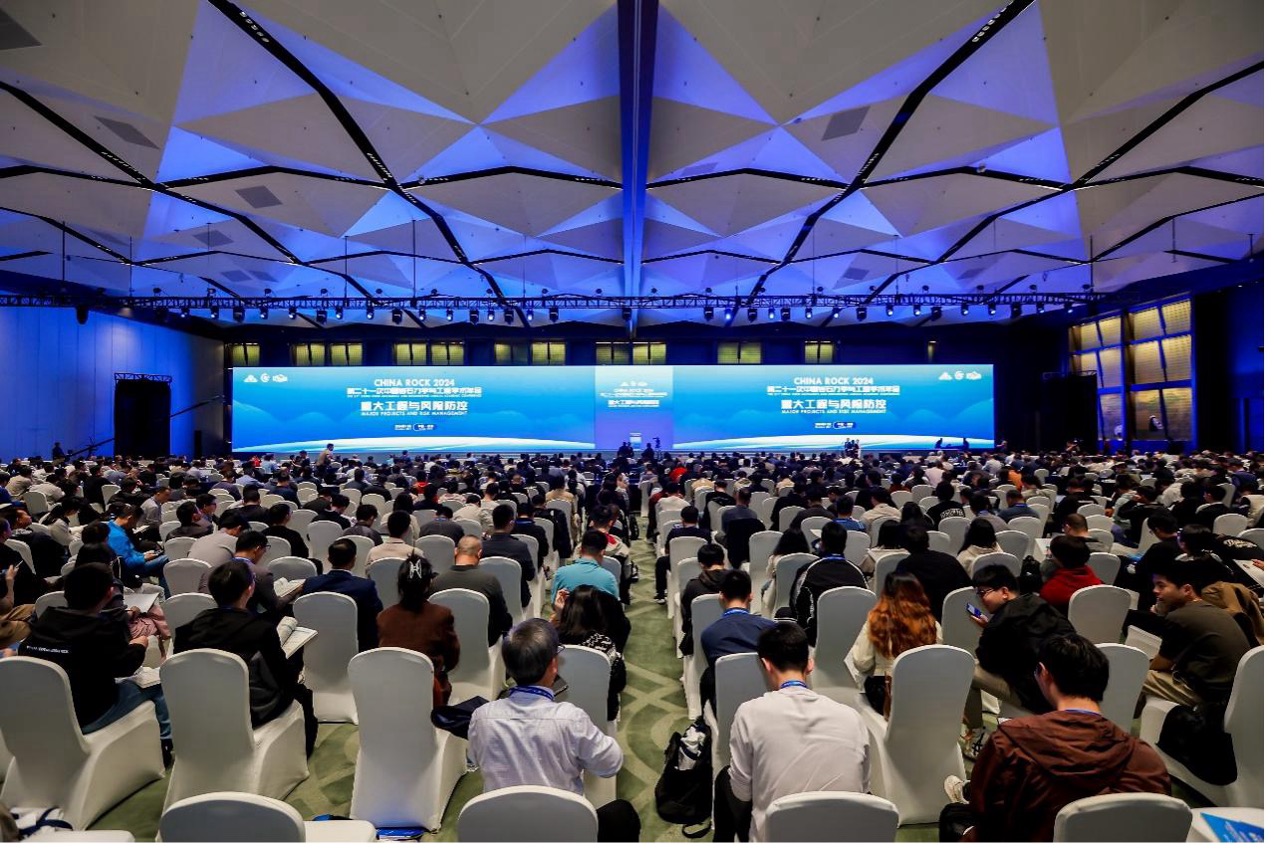
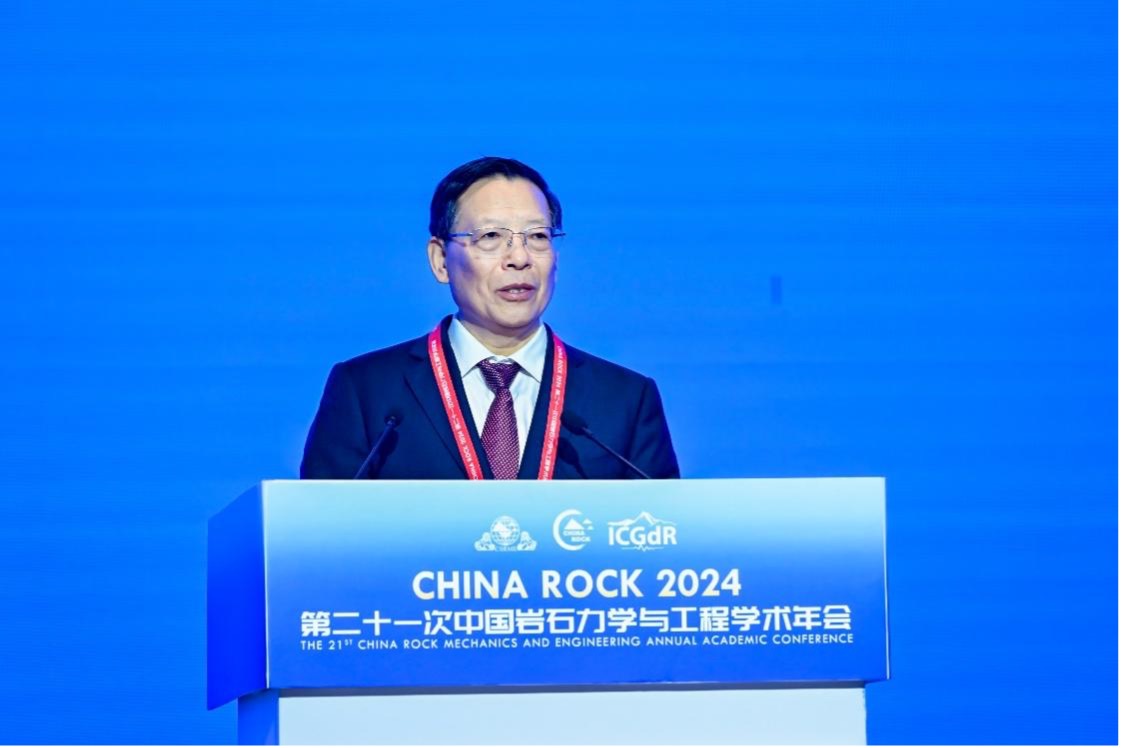

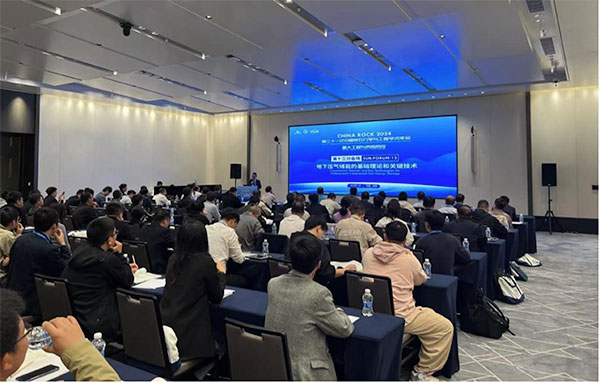
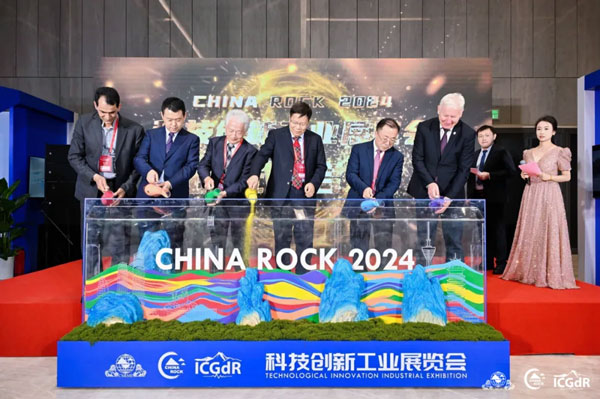

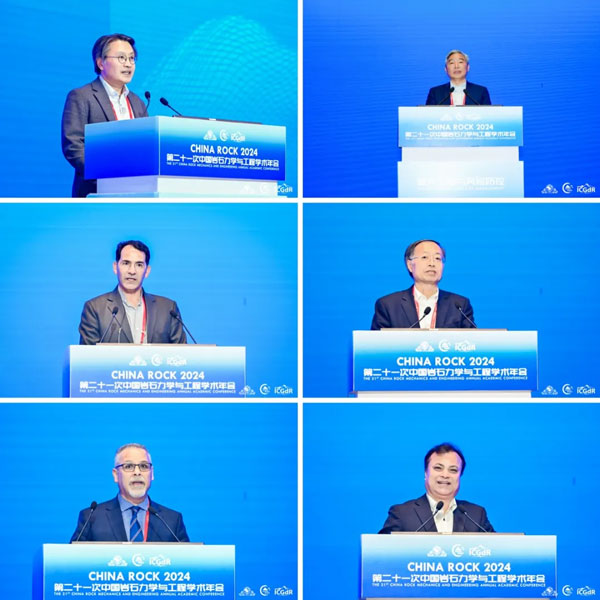

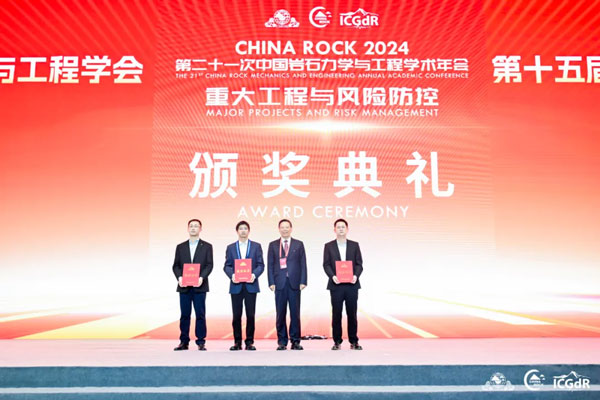







 中国岩石力学与工程学会微信订阅号
中国岩石力学与工程学会微信订阅号
 科普岩石力学与工程
科普岩石力学与工程